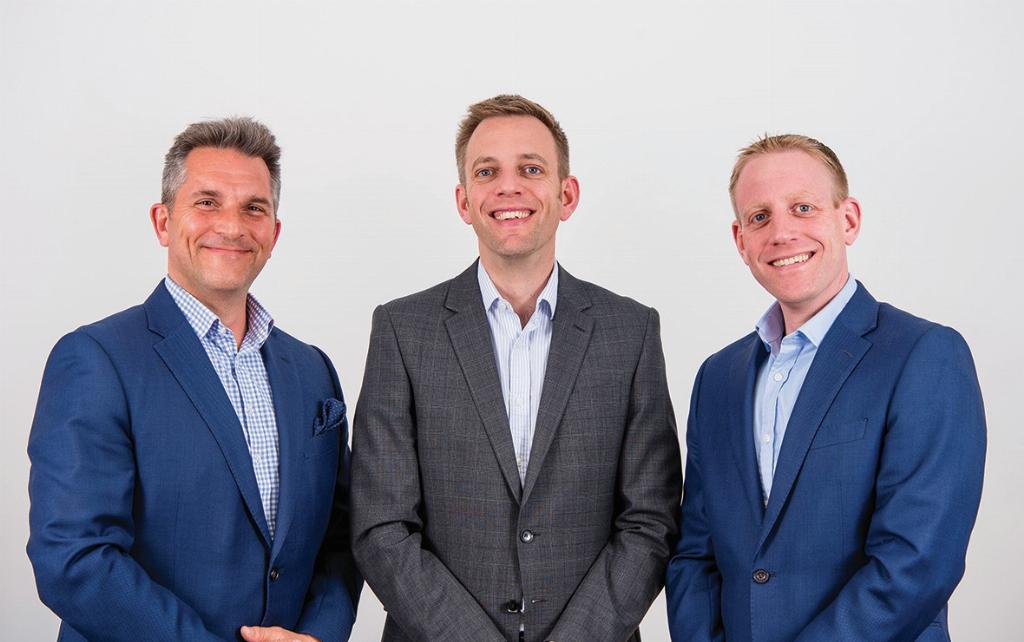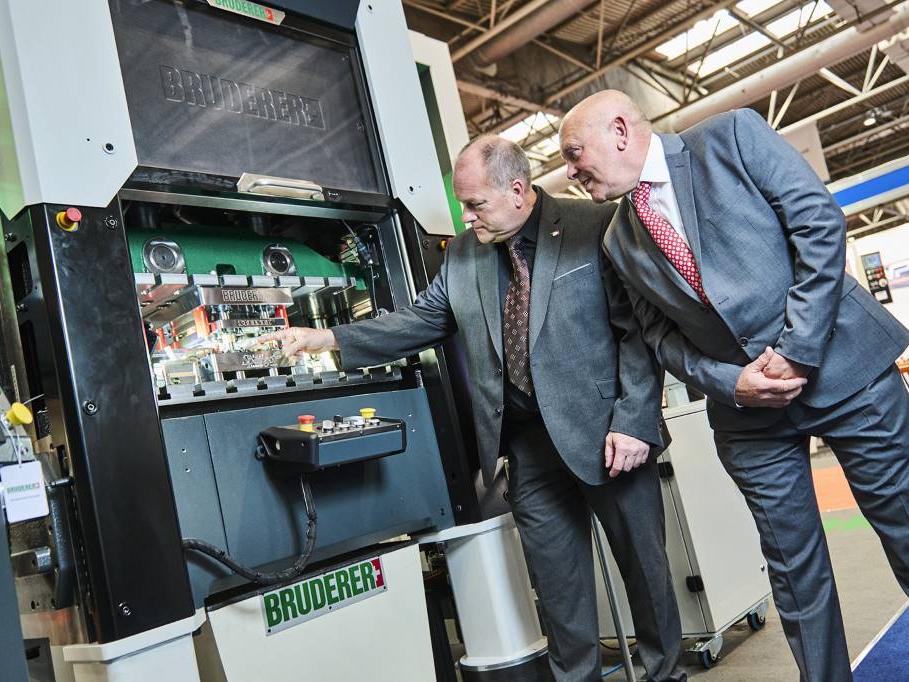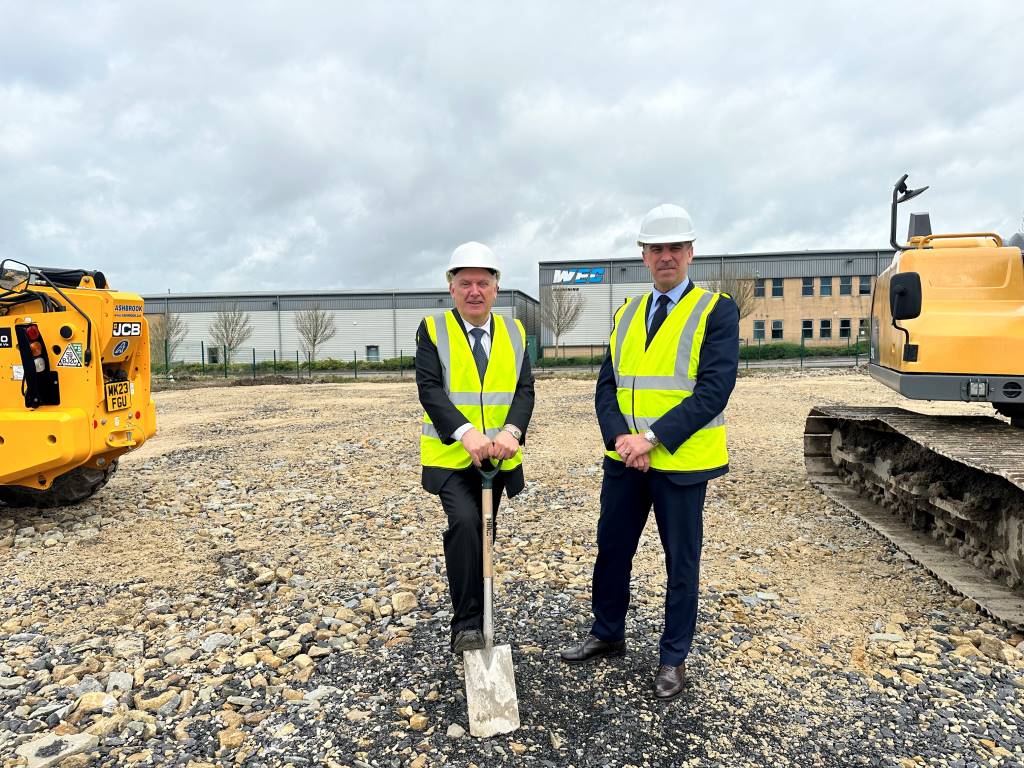Flexible lending from Compass Business Finance

So, you’ve got your eye on the latest all-singing, all-dancing 5-axis machining centre/CMM/laser profiler/press brake/sliding head lathe (delete as applicable). You need it to keep up with customer demand; enquiry levels are high and you simply must have more capacity – but how do you raise the funds for said purchase? Well you could get in touch with Compass Business Finance.
Dave Tudor reports.
People, companies and indeed entire nations have been borrowing money since time began. Whether you need a new kitchen extension, a mortgage, or cash for a management buyout, money really does make the world go round.
In fact, in business it’s a necessity. The most successful, entrepreneurial companies will have all borrowed money at some point. Investment is essential to growth, prosperity and profitability – and that’s never been truer than today where technology is advancing at a truly astonishing rate.
In the money lending game, there’s certainly no lack of choice. When it comes to machine tools for example, some manufacturers and distributors offer their own finance schemes. The advantage of this approach is that, at least in principle, you’re borrowing money from the same company you’re buying the kit from.
You may have a longstanding relationship with that supplier and if that’s the case, there could well be a high degree of flexibility where the finance is concerned in terms of tailored, customised packages and agreements. There’s always a deal to be had somewhere.
But this option isn’t right for everyone and that’s where companies like 16-employee, Tonbridge, Kent-based Compass Business Finance – an organisation well-versed and experienced in providing tailored financial solutions to manufacturing businesses – can shine some much-needed light on what can be a mind numbingly complex subject.
Manufacturing experience
Immediately dispelling my wildly misplaced belief that only manufacturing companies are born in garden sheds, it seems financial organisations spring from similarly humble beginnings as well. This is how Mark and Jamie Nelson launched Compass Business Finance 15 years ago. Company director, David Bunker takes up the story.
“Initially, Compass started as a brokerage but since our formation we’ve grown the business significantly to a point where today, we can offer the best of both worlds – a highly flexible financial brokering service alongside a well-established loan portfolio that enables us to lend money from our own funds if necessary,” he explains.
Like a financial advisor recommending a particular mortgage, the role of a broker in this context is to source the best possible financial deal for its customers, but with Compass the service runs deeper and this is due largely to its vast experience operating in the manufacturing sector.

“We see our role as establishing long-term relationships with our customers so we can help them financially through their respective journeys,” Mr Bunker adds. “We work with many fledgling businesses helping them get started and we support them as they develop and grow.
“But we also work with more established organisations as they invest in new equipment, technology and infrastructure; we can offer support with Management Buyouts (MBOs), mergers and even financing moves into new premises to facilitate expansion.
“We can also add value is through our strong relationships with used equipment suppliers and capital equipment manufacturers. Customers will often task us with finding a particular type of machine tool for example. In these instances, we not only look after the finance; we actually source the capital equipment.”
Winning formula
Compass must be doing something right: practically all its customers are manufacturers and a healthy proportion have been clients since day one.
Its staff are experienced in working with SMEs in the manufacturing sector and that shouldn’t be underestimated. Company owners and decision makers are often engineers not accountants; they may not have financial experts on the payroll to turn to; and they probably haven’t got a well-crafted business plan that’ll have lenders queueing up ready to throw money at them.
So what companies really need is someone on their side; an ally who can fight their corner and articulate the growth plans of the business to a prospective lender, along with its aspirations, ambitions and goals to effectively ‘persuade’ said lender to part with the cash.
This is where Compass Business Finance fits into the equation. It knows what lenders want. Some may disagree through their own experiences but David Bunker believes that it’s this personal, face to face service that differentiates Compass from high street banks. Not forgetting of course that a bank can only promote its own products and services. Compass is independent and has a vast range of lenders and different financial packages at its disposal.
Government-backed security
Without doubt however, one of Compass’ biggest differentiators is its work with the British Business Bank to bring the Enterprise Finance Guarantee (EFG) to the marketplace. The British Business Bank is a government-owned business development bank that aims to ensure that finance markets work effectively for SMEs enabling them to grow, prosper and build UK economic activity.
Although there are 40+ lenders in the UK able to offer EFG, in 2018 Compass became one of the first asset finance providers to receive accreditation. Today it is one of just six such companies.
“This was a real milestone in the company’s history,” Mr Bunker asserts. “In practical terms, EFG enables Compass to provide facilities to smaller businesses that previously wouldn’t have had sufficient security to access the finance they require. The bottom line is that SMEs wanting to buy capital equipment but are unable to raise the right level of deposit can now do so against a government-backed insurance policy.
“Effectively, the programme provides Compass with a guarantee for up to 75% of the outstanding balance of eligible facilities, potentially changing what would previously have been a ‘no’ credit decision to a ‘yes’.”
Compass offers the EFG programme to its loan-book customers only and qualifying customers pay a small fee (collected via a quarterly direct debit arrangement) towards the scheme as part of the finance deal itself.
As is always the case with financial arrangements in any walk of life, there is eligibility criteria: businesses must be UK-based with a turnover of no more than £41 million and must have a sound proposal along with the ability to repay the loan.

EFG guarantees facilities to fund the future growth or expansion of a business from £1,000 to £1.2 million and finance terms are from three months up to seven years for asset finance. “Since its launch in 2009, the Enterprise Finance Guarantee has supported smaller businesses with the provision of over 30,000 loans and other facilities totalling more than £3.2 billion,” Mr Bunker advises.
“We would encourage companies to give us a call about EFG,” he says. “If we can offer finance on normal commercial terms without the need to make use of EFG we will. However, if you have a sound borrowing proposal but either no or inadequate security, we can consider support via EFG.”
David Bunker believes Compass’ service offering is the best in the business. Of course he would say that but he makes a pretty compelling argument: “60% of our business is acting as a broker where we have access to the widest spectrum of lenders in the marketplace,” he explains.
“That, coupled with the ability to lend our own money through the EFG scheme is a true win win situation and one that is unique in the industry in our opinion.”
Flexible finance
In terms of the types of lending offered by Compass, things tend to fall into three main categories: Asset Finance – where finance is secured against an asset through a hire purchase, finance lease, or operating lease agreement; Asset-based Finance – which is ideal for releasing capital or improving cash flow against existing business assets; and Unsecured Loans which are straightforward loans with regular repayments made over the agreement period.
Unsecured loans are less dependent on a company’s tangible assets so for investments in things like IT systems, mezzanines and software, their popularity is on the rise. “In truth, we would always try and base lending on existing assets first, but if that’s not possible, an unsecured loan is definitely a viable option,” adds Danny Plows, finance specialist at Compass Business Finance.
After working in commercial banking for 15 years, Mr Plows is more qualified than most to comment on the bank vs broker discussion: “Banks often operate a strict tick box mentality where finance is granted (or not) solely on a company’s ability to meet a rigid set of criteria,” he reveals. “It was very, very frustrating at times because of its inherent inflexibility.
“Since I’ve joined Compass it’s a whole new world. Because the company’s ethos is 100% customer focused, I can almost always tailor a package to meet the client’s specific circumstances. Every situation is different. For me personally, that’s incredibly powerful, motivating and rewarding – and the fact we can lend our own money as well is the icing on the cake.”
Compass Business Finance www.compassbusinessfinance.co.uk











